Noel Gallagher on Marr, Les Pauls and songwriters vs bands
"Oasis didn't invent that sound. I invented that f**king sound"
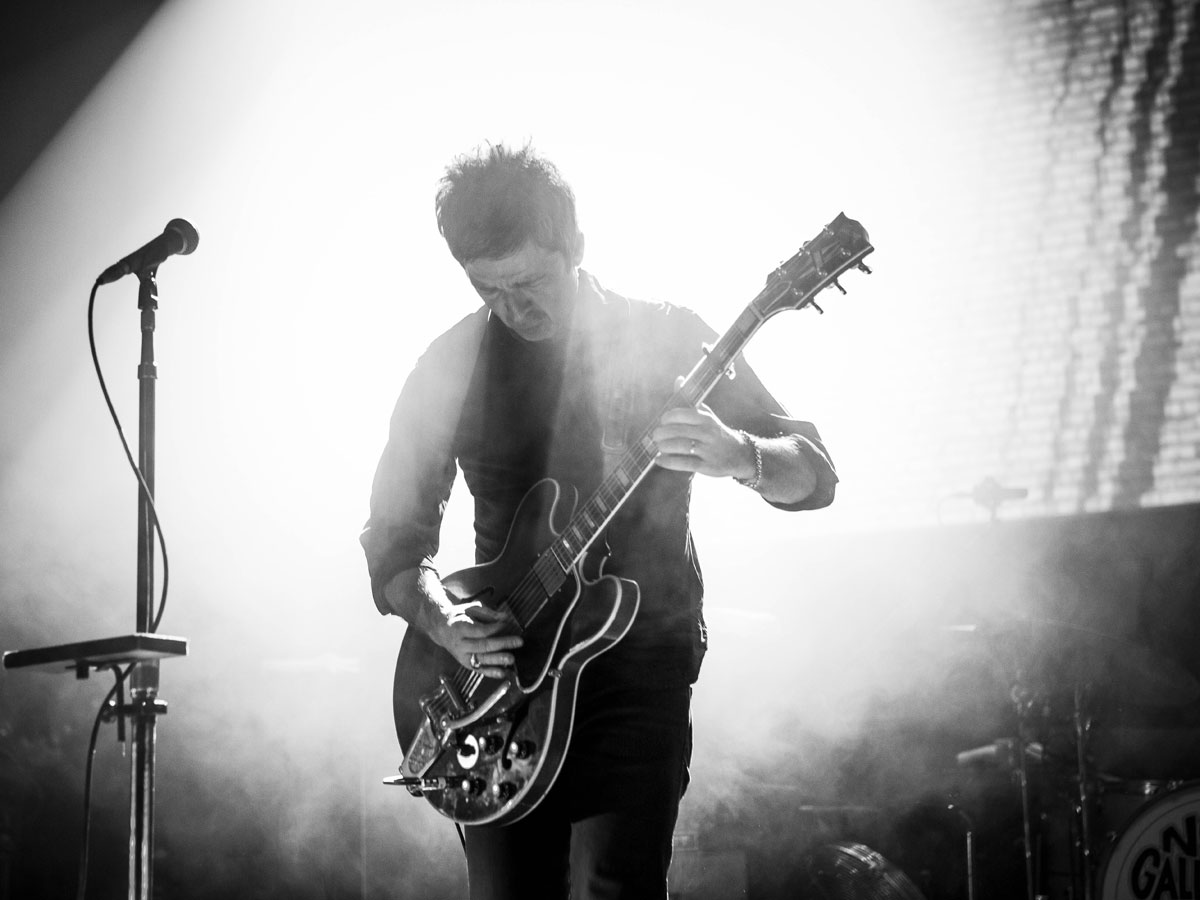
Introduction
Noel Gallagher is sitting in the swanky office of his label, Sour Mash Records, nursing a bit of a cold during a break from rehearsals for his forthcoming world tour in support of Chasing Yesterday.
"'No-one wants to talk about the music,' he says, clearly frustrated"
It's his second solo album under the guise of Noel Gallagher's High Flying Birds since leaving Oasis in 2009, but it's light years away from Supersonic, Rock And Roll Star, or even The Importance of Being Idle for that matter. Gallagher's first solo outing, 2011's Noel Gallagher's High Flying Birds, sold more than 2.5 million copies, and the tour to support it went from smaller venues to arenas in a matter of months.
Regardless, when TG catches up with Gallagher, he's fresh off a round of interviews that covered just about every topic under the sun - his swipes in the press at Ed Sheeran, relations with his brother Liam, his appearance on Gogglebox with pals Naomi Campbell and Kate Moss and, of course, whether Oasis will ever reunite - except, that is, for his music.
"No-one wants to talk about the music," he says, clearly frustrated. So it is that the man called The Chief during his days in Oasis is particularly pleased to talk about his album, his songwriting process and, of course, his guitars.
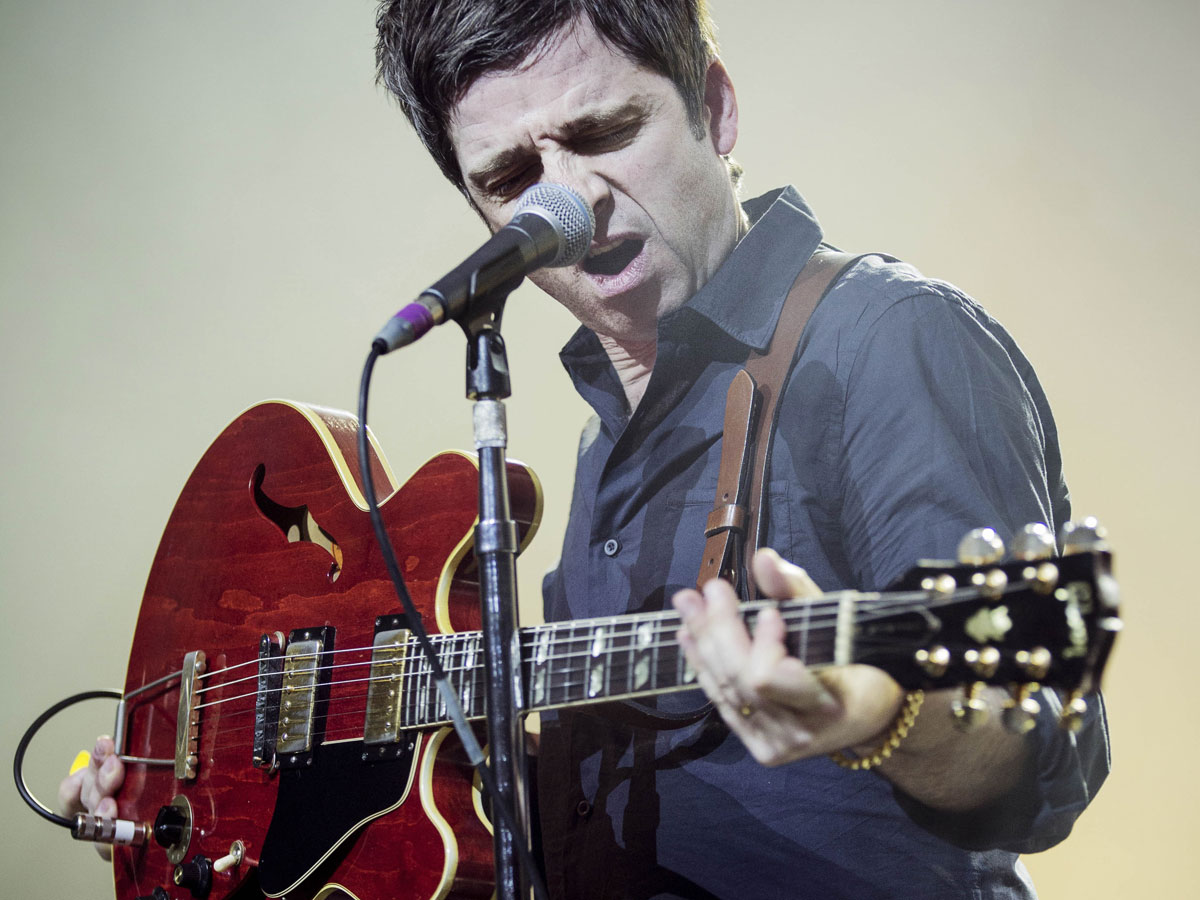
Searching for the Riverman
Did you play most of the guitars on Chasing Yesterday?
"The tracks are all me until I get to a point where I'll sit and go, 'I don't fucking like the bassline.' Then I'll try something else, and if I can't get it I'll hand it to Paul [Stacey]. Nine times out of 10, he comes up with something better."
"It all starts with me, until I reach the point where I become aware of my limitations"
Riverman's guitar solo is played by Stacey, and his work is all over Chasing Yesterday. Did you provide any direction, or give him free rein?
"I did that guitar solo a dozen times. Not the actual notes. I did a guitar solo, and I thought, 'I'm not good enough to pull this off. It needs to be a cross between Santana and Peter Green with a little David Gilmour at the end.' I asked if he could do it, and he did it. So on a song like Riverman, I'll just let him do what he wants. Then I'll go, 'Whoa, go back to that bit. Play that riff again.' I'll say, 'Right, let's make that the main thing.'
"We'll do that and go along, taking out bits until we form something that he plays as one piece. We kind of collage it together, really. It'll be like that. But it all starts with me, until I reach the point where I become aware of my limitations. I'm aware of my limitations as a guitarist, and I'm lucky enough to have a guy who's a fantastic engineer, who is also a virtuoso on the guitar. He can play anything."
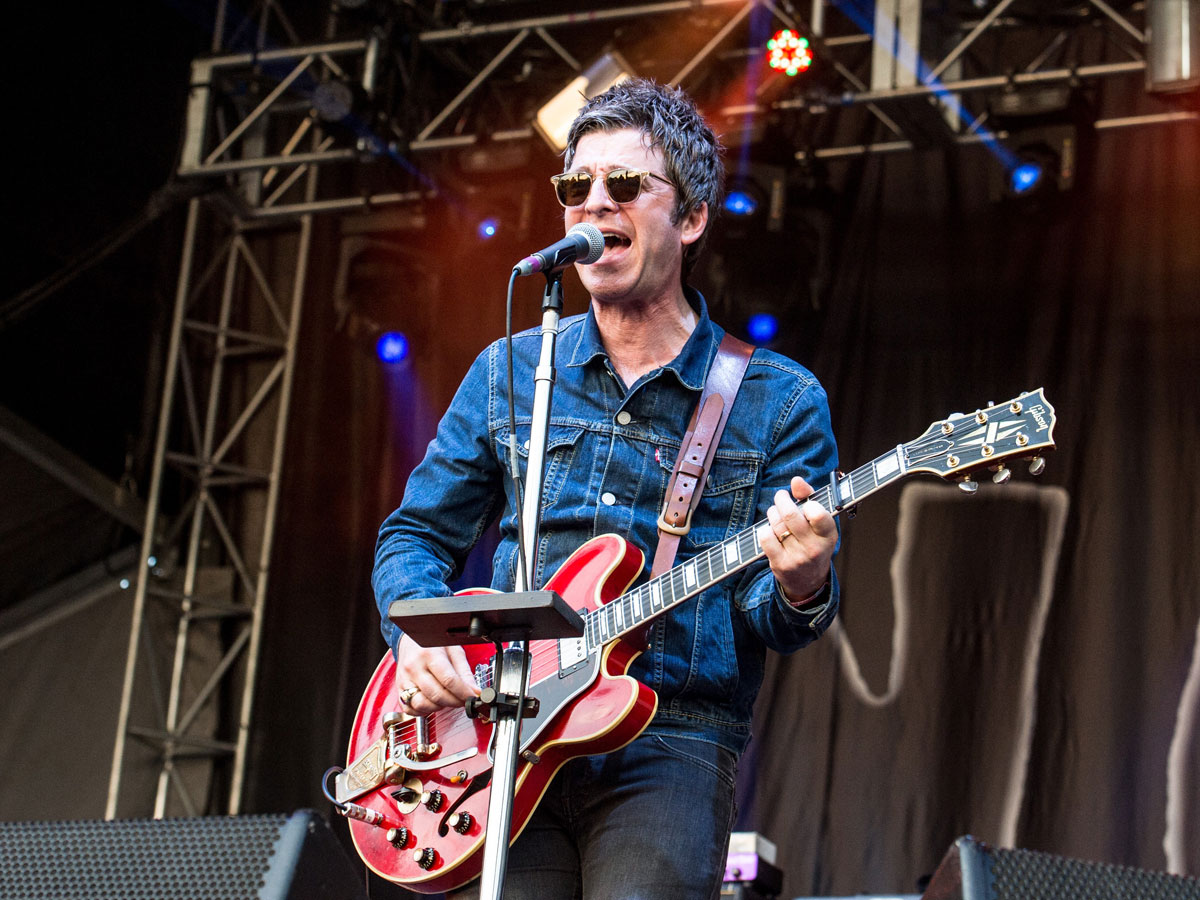
Old habits die hard
Have your songwriting habits changed much on this record? Did any songs start with loops, for example?
"No, never. It's all me sitting with a guitar, watching TV with the sound down. It's like pottery or crafting, you know what I mean? You get a shape, and then you make it better. You put some more water in and make it better and better until you can say, 'Right, that's finished. Let's do another one.'"
"I've never really second-guessed anything, because you can't make records for your fans"
Your two solo albums have been more groove- and rhythm-based, and have a broader scope and are more experimental than what you did with Oasis. Some fans might long for those days, though. Do you worry about that in the studio? Do you second-guess putting on saxophone, or just let it fly?
"Before I start the record, I'll do acoustic demos. I listen to them for quite a while before I actually commit to going in and recording the songs properly. I listen to them in all sorts of different guises: when I'm on a train, a plane, with headphones, in the bedroom, in the shower. I listen to them all over the fucking place.
"By the time I get in to record them, I've got a fair idea of what I want to do with them. I've never really second-guessed anything, because you can't make records for your fans. You can't do that. My fans would want 12 versions of Wonderwall!"
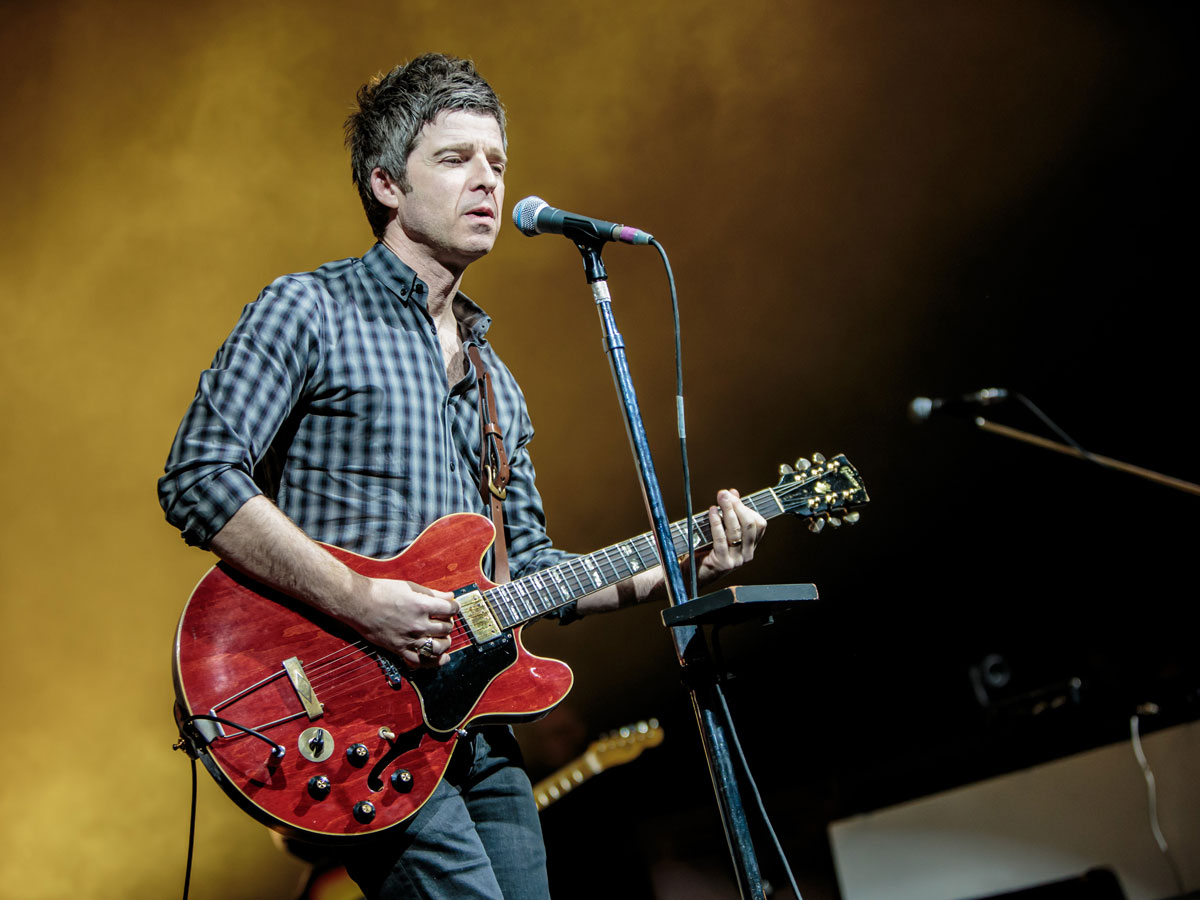
The song
It seems as though you're playing fewer lead parts - your trademark fills - in your songs these days. Is that something that you left behind with Oasis?
"I just try to serve the song, and play with people like Paul and [his brother, drummer] Jeremy [Stacey], who put the song first. So for me, personally, I just look at the song.
"When I played people The Right Stuff, people close to me were going, 'Well, that's a bit brave, isn't it?'"
"If it's a good song, I don't give a fuck what it sounds like. If someone says to me that it's a bit similar to Wonderwall, I'll say, 'Fucking great!' As long as it's a good song, I don't care. If Lock All The Doors takes 23 years to finish off, the 23 years are worth the wait.
"By the same rule, when I played people The Right Stuff, people close to me were going, 'Well, that's a bit brave, isn't it?' I'd say, 'Really? I don't know what you're talking about.'
"If it's a good recording of a great tune, that's all that matters to me. I wasn't thinking while employing the saxophone player, 'Wow, this will really fuck with people's brains.' I wouldn't do that just because I thought it would be cool anyways. It worked with the song. That was it. That's all that matters to me. The song."
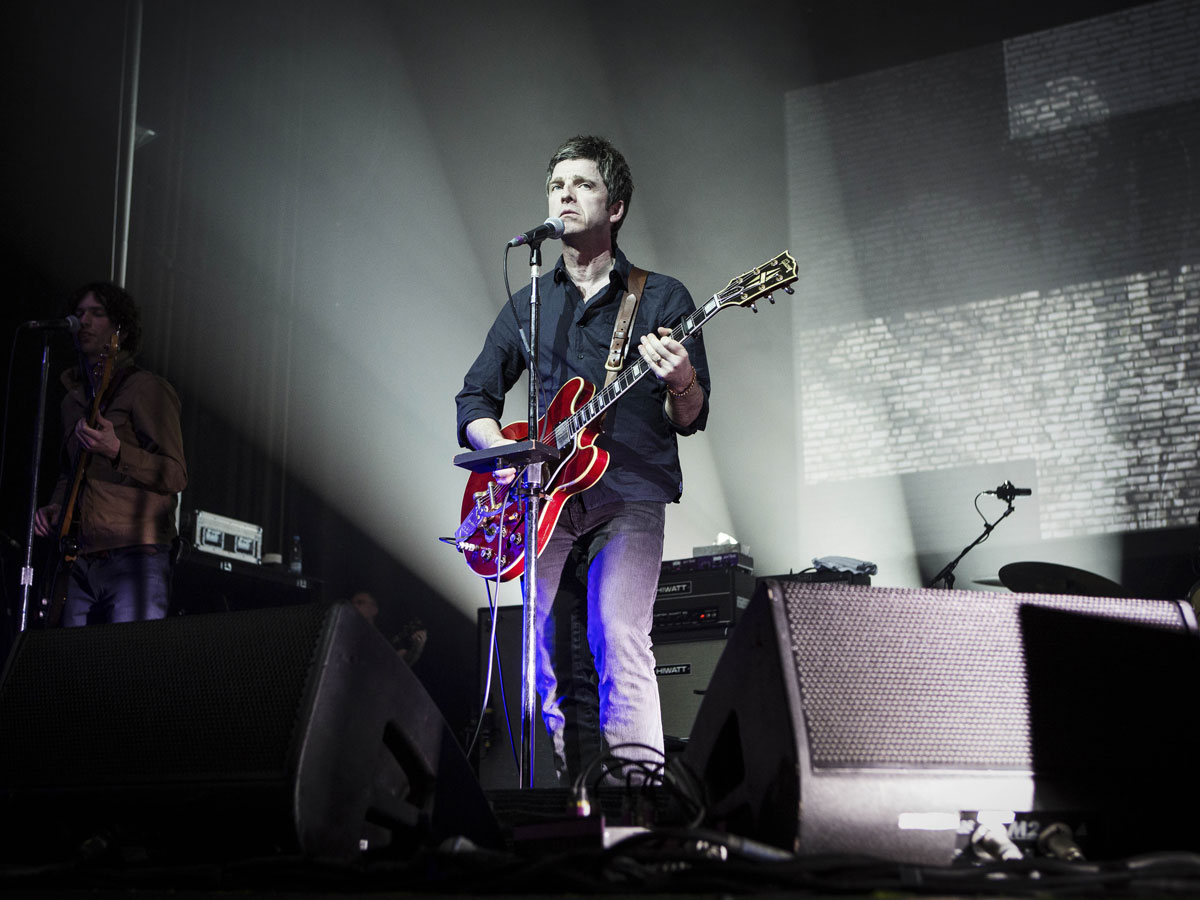
The Mighty Marr
Did working with Johnny Marr in the studio surprise you, especially in the way he approaches guitar creatively?
"Johnny will hone in on a thing quite quickly and develop it until it's perfect. Like the guitar part on the track he did for me. He came up with that almost instantly and then he just refined and refined it until it was perfect.
"I thought, 'You know what? It needs Johnny.' So I called him"
"But it didn't become the Johnny Marr show. He was very sympathetic to what the song was and what he was going to do on it. He's not just going to play all over it. He played what was needed, and that was it."
Why did you want to bring him in for The Ballad Of The Mighty I, specifically?
"In the gaps where he plays, I left those gaps, and it needed something specific, a specific guitar thing. It was a thing that was beyond me. I tried to play something, and it sounded like The Edge, but badly like The Edge.
"Then I did another thing, but it just didn't do the song justice. It wasn't beautiful enough. It was a bit straight. I thought, 'You know what? It needs Johnny.' So I called him.
"Luckily enough, our diaries crossed at one two-day period. We chose a day, he came, and we did it. It was unbelievable. The minute he started playing, the first thing he played was exactly what I thought he might play and what I wanted him to play. Then he got the sound, and it was just amazing."
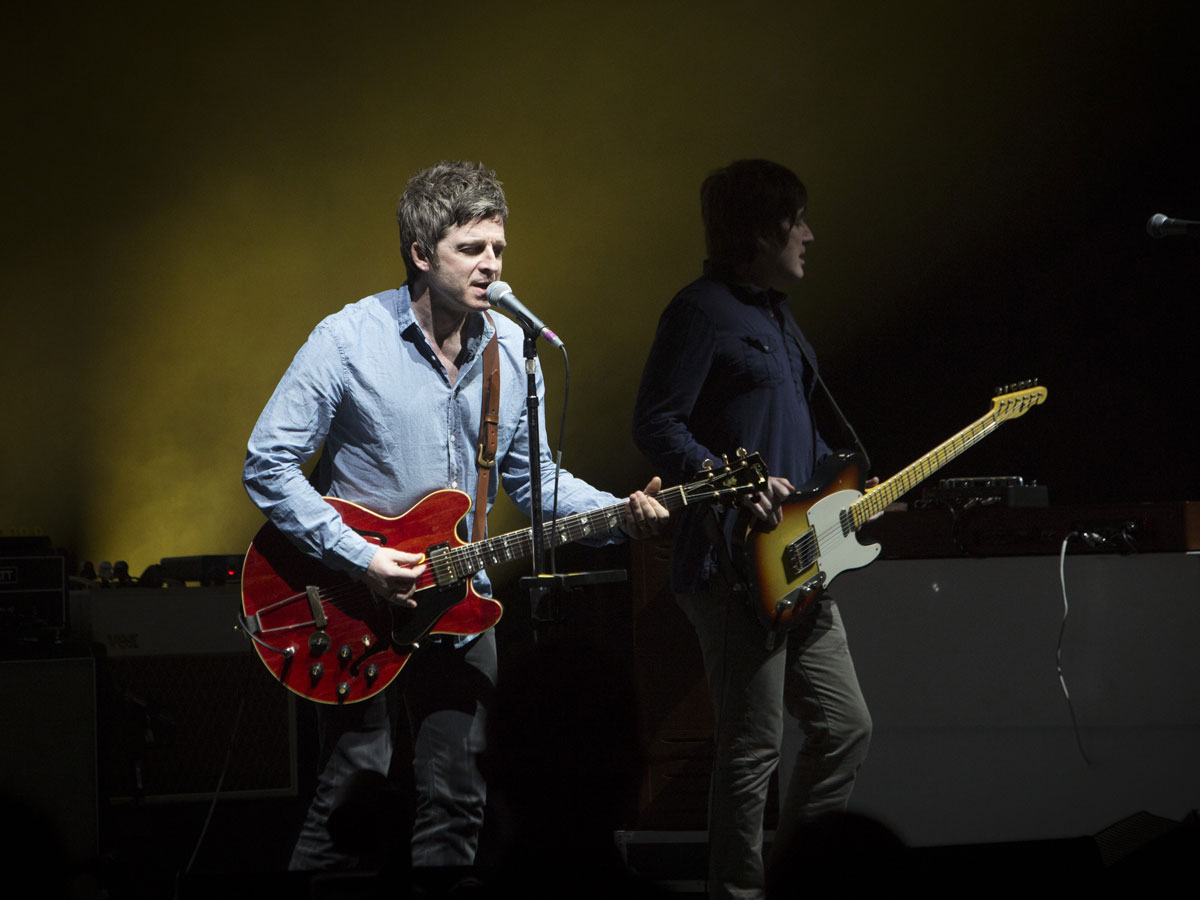
Pete's 'Paul
Is it true that Johnny Marr has given you not one, but two of his Smiths Les Pauls over the years?
"He's given me three or four guitars down the years. He's given me a 60s Les Paul that used to belong to Pete Townshend, and he's given me a black Les Paul that was a Smiths guitar that was used on the track The Queen Is Dead.
"I will have a guitar in my house for two years, but then I'll think, 'That's all used up now.'"
"He also gave me a Fender Stratocaster. I don't know what he used it on, but I wrote and recorded Don't Look Back In Anger on it. I think that's it. He only loaned them to me, and I've never given them back. He's not getting them now."
Would you be tempted to extend the collaboration? Why don't you have Johnny in the live band, for example? He's not averse to joining bands for periods of time.
"He's on the road doing his own thing. Needless to say, if I even had the slightest, one per cent thought that Johnny Marr would join my band and play guitar, I would fucking get on my knees and beg him to do it.
"He's got a solo thing going on, I think. Rightly so. It's about time he started making records for himself and stopped fucking about."
Some people talk about guitars 'having a lot of songs in them', where they are especially inspiring for songwriting. Do you have an acoustic that's a go-to guitar for writing?
"No, I go for the other approach. I will have a guitar in my house for two years, but then I'll think, 'That's all used up now.' Then I'll send it back to my lock-up, and I'll just pick another one at random. I'll take it home, tune it up, clean it up. I think all guitars have got songs in them. So I'll shake it up a bit.
"Sometimes I'll want to have an acoustic at home for years. For the last couple of years, it's been this Nash Strat[-type]. But the last six months it has kind of dried up a bit, so I'll put that back in the lock-up, and then I'll dig another one out to see if something comes from it. Usually it does, funnily enough."
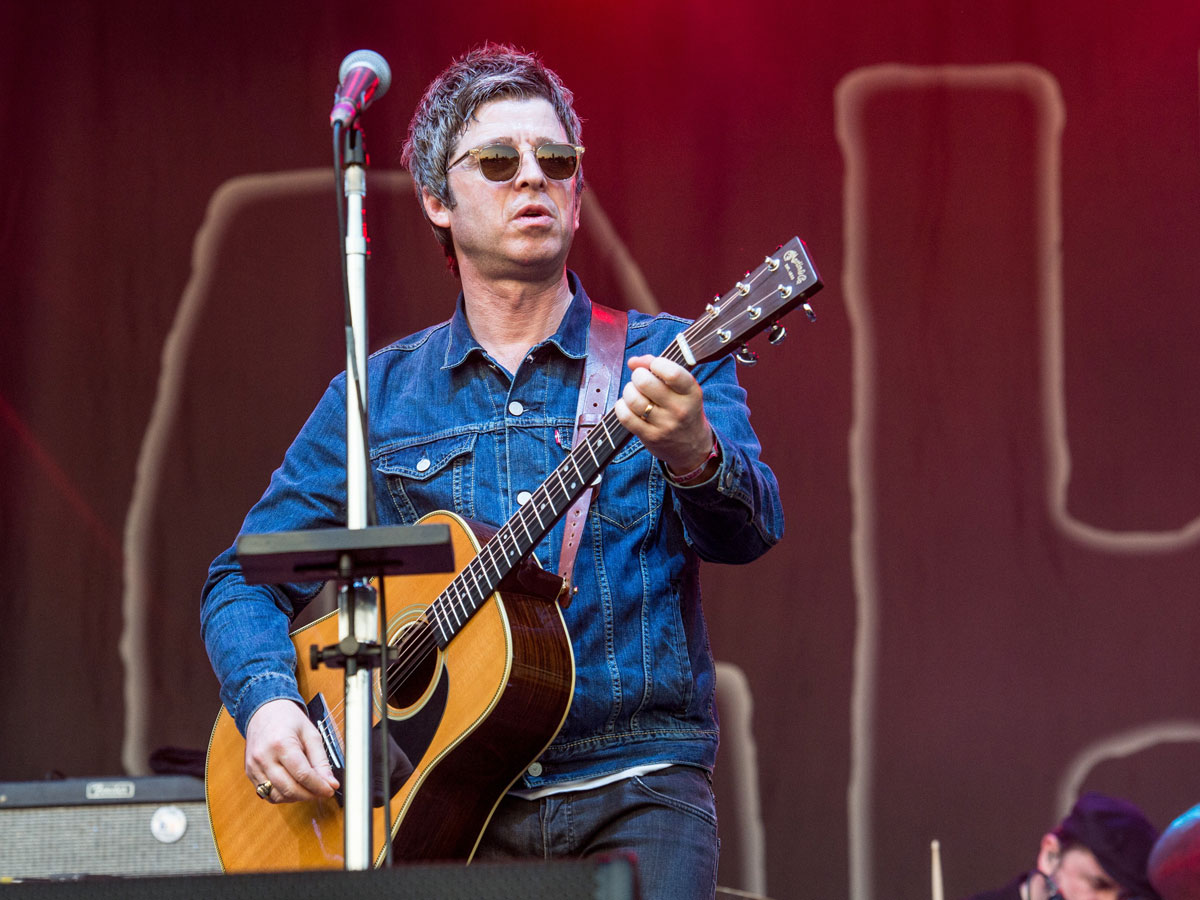
Singer-songwriters vs bands
Do you think the recent rise of solo singer-songwriters in the UK has come about because of the void of great rock 'n' roll bands?
"I'm sure that if they were given a chance there'd be a lot of bands out there. But there's a reason there are a lot of singer-songwriters. Because no-one wants to be in a fucking band any more. No-one wants to be in a band because you can buy enough technology to have a recording studio and a pressing plant in your own bedroom.
"The singer-songwriter thing - although I am one, I guess - doesn't really change the world the way a great band does"
"It's easy for people, for singer-songwriters. It's convenient. That's why the music sounds easy and convenient. A band is all about the struggle. It's fucking hard work to be in The Rolling Stones because of the personality clash. It was tough to be in Oasis because of me and Liam. But out of it, you manage to somehow forge this fucking great music.
"Singer-songwriters do not change the world. I'm not talking about albums. Fuck the music. The music is secondary to bands. When I think of The Rolling Stones, I don't think of the music. I think of them. The fact that they made that music comes a very close second, but it's still secondary to them."
It's more about the fact that The Rolling Stones are a gang...
"Yeah, of course. And the Sex Pistols. The music is great, and that's why we all love them, but really, it's the Sex Pistols, man. It's what they fucking did, you know? They were a band. They changed the way that we dressed. They changed the way that we thought. Bob Dylan wrote some great songs, but he never changed the fucking world."
Didn't he?
"No, he didn't."
What about at least when he went electric and then hooked up with The Band?
"There you go. That's what I'm saying. He shook it up when he went electric and with The Band. The singer-songwriter thing - although I am one, I guess - doesn't really change the world the way a great band does."
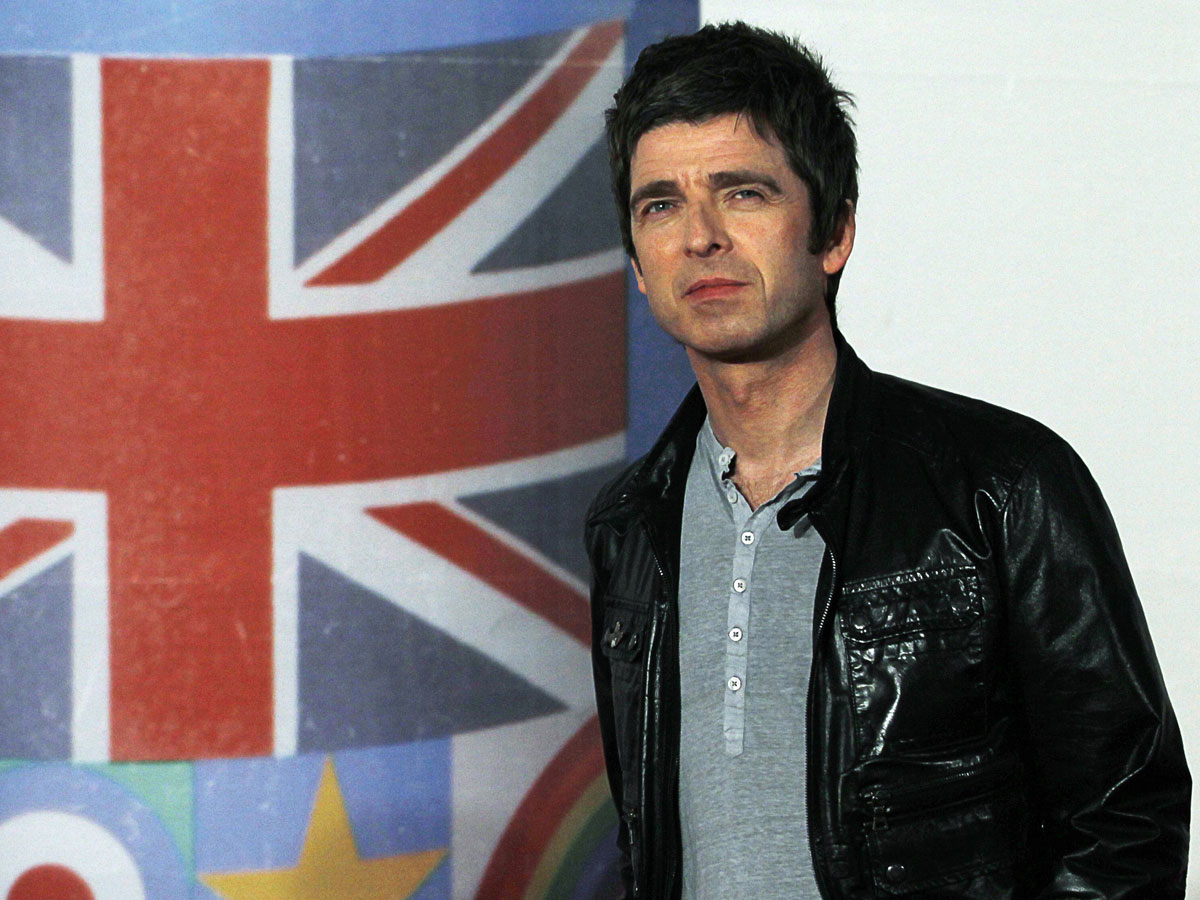
Going solo, in a band
For whatever reason, your last album really seemed to set you up as a solo artist, but we don't really think of you as a singer-songwriter even though it's not a band per se, you still think of the music in those same terms...
"I like not relying on anybody else, particularly as the people I was in the band with, one of them was extremely fucking unreliable"
"I know what you mean. I don't write earnest folk music. I still write music that sounds like it's made by a group. That's what I've always done. I was a songwriter before I joined Oasis. Oasis didn't invent that sound. I invented that fucking sound. That just comes from my soul.
"But when I say I'm a singer-songwriter, I mean I sing and write my own songs, so factually I am. But I'm not in any way like James Blunt, thank God. I agree, bands have more power. Bands change passion and the way that young people think.
"What I'm doing now is the same as what I did in Oasis, only a lot more peaceful. I love being in the studio on my own. I like not relying on anybody else, particularly as the people I was in the band with, one of them was extremely fucking unreliable."

